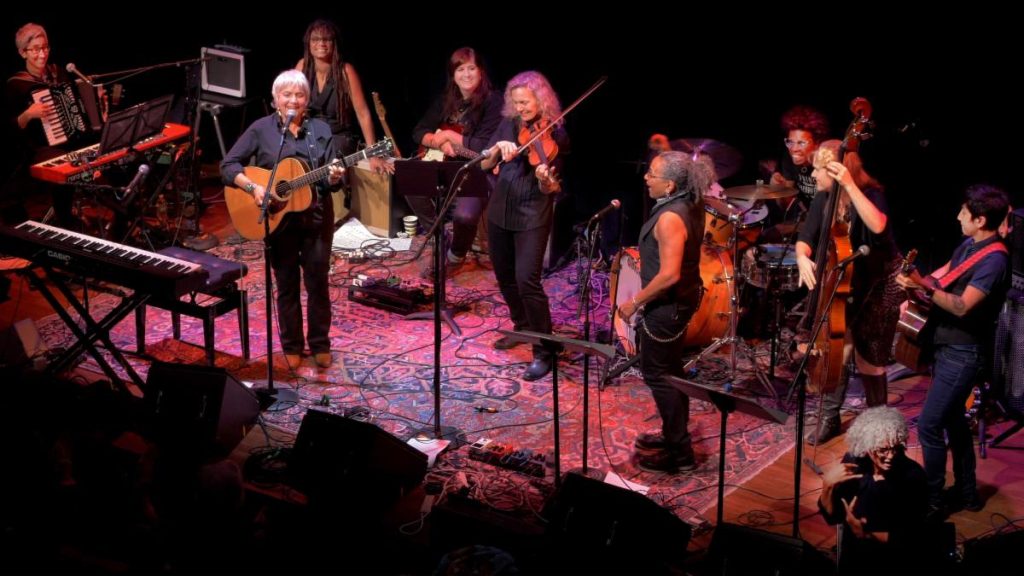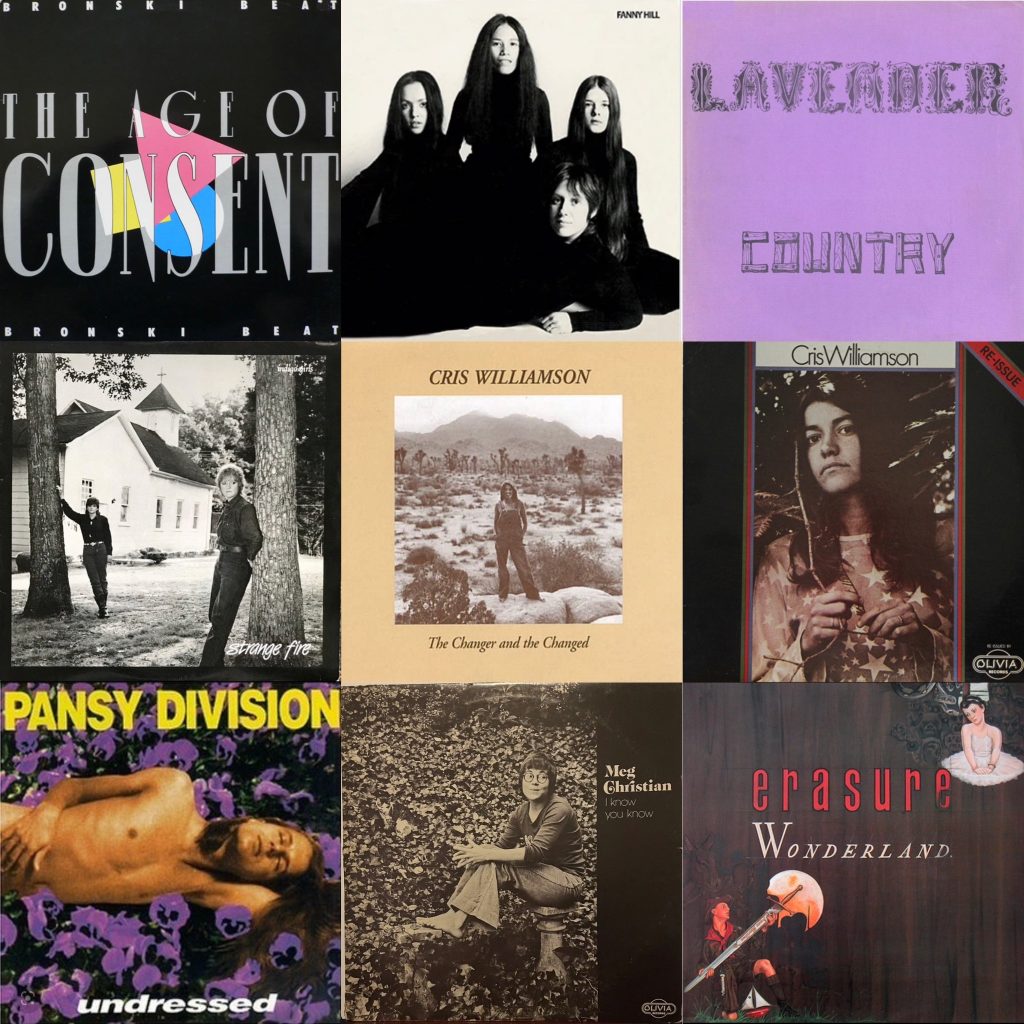Cris Williamson Celebrates 50 Years of Olivia Records & Women’s Music With ‘The Grand Reunion,’ Jan. 6 & 7
by Christopher Treacy

NPR’s Ann Powers summed it up well, proclaiming, “Cris Williamson’s iconic 1975 album, The Changer and the Changed, featuring groundbreaking songs about same-sex love, became one of the best-selling independent releases of all time.”
On Friday and Saturday, January 6 and 7th, The Freight & Salvage in Berkeley, CA, will host The Grand Reunion to celebrate the 50th anniversary of Olivia Records; the storied Women’s Music label was founded in the Washington D.C. area in 1973, two years before putting out Cris Williamson’s groundbreaking Changer album and relocating to California. In the interim, fellow queer pioneer Meg Christian released a split 7″ with Williams to launch the label; Christian recorded a song written by Carole King and Gerry Goffin called “Lady,” while Williams’s original “If It Weren’t For the Music” was on the other side. Sales from the vinyl 45 were then used to get the fledgling operation off the ground. For more about the evolution of Women’s Music, this talk given by Women’s history professor Bonnie J. Morris is fascinating. The section on Olivia Records is near the 28-minute mark.
But why is The Changer and the Changed iconic? If it hasn’t crossed your path before, it’s well worth your time. Having debuted some 48 years ago, it not only helped set a template for women’s music, it also brought the sound of the movement to a larger audience as the most commercially successful record of its kind. Simply put, the album broke down barriers.
The Changer and the Changed definitely holds an important place among other groundbreaking queer records— albums by June Millington’s band Fanny, the Lavender Country debut, Meg Christian’s I Know You Know (the debut full length album on the Olivia label), Pansy Division’s Undressed, Bronski Beat’s The Age of Consent and Erasure’s Wonderland, and of course, Indigo Girls’ Strange Fire (and their self-titled second album as well)—as a collection of songs that altered the queer music trajectory. All of this before we even get to say: it’s gorgeous.
And, while stylistically more aligned with 70s singer-songwriter folk, it is most certainly part of the Country Queer canon. Changer is actually Williams’ second album. Her self-titled debut was released in 1971 on Ampex, a major label (also known for manufacturing magnetic tape and recording gear) and was later reissued by Olivia. Both records showcase her unique gift for composition… and some mystically-tinged storytelling that comes from an unapologetically queer vantage point.

Christian, Williamson, and all of the Olivia artists that followed helped create a queer musical legacy that deserves to be celebrated. For these very special shows at Freight & Salvage early next month, Williamson will bring together a handful of her Olivia contemporaries — Mary Watkins, Barbara Higbie, Vicki Randle and others, along with a supporting cast of Bay Area favorites: Julie Wolf, Katie Cash, Shelley Doty, Kofy Brown and Mouths of Babes. More information and tickets can be found here.

Presenting the Jack Emerson Lifetime Achievement Award from the Americana Music Association to Cris Williamson and fellow Olivia co-founder Judy Dlugacz in 2019, music critic Ann Powers said, “The mission of Cris and Olivia was to speak out loud what others would keep silent. These women sang of truly being themselves, and of loving each other – in relationships, as sisters, as spiritual allies. Lives changed as listeners heard their stories openly celebrated for the first time. The music became like an open secret, shared from fan to fan in dorm rooms and at kitchen tables, in concerts held in basements and at music festivals. It still resonates today. If you don’t know about Olivia Records, you still know what Olivia did. It created an essential blueprint for running an independent record label. It gave us great music that everyone should hear, if they haven’t. And it set people free.”